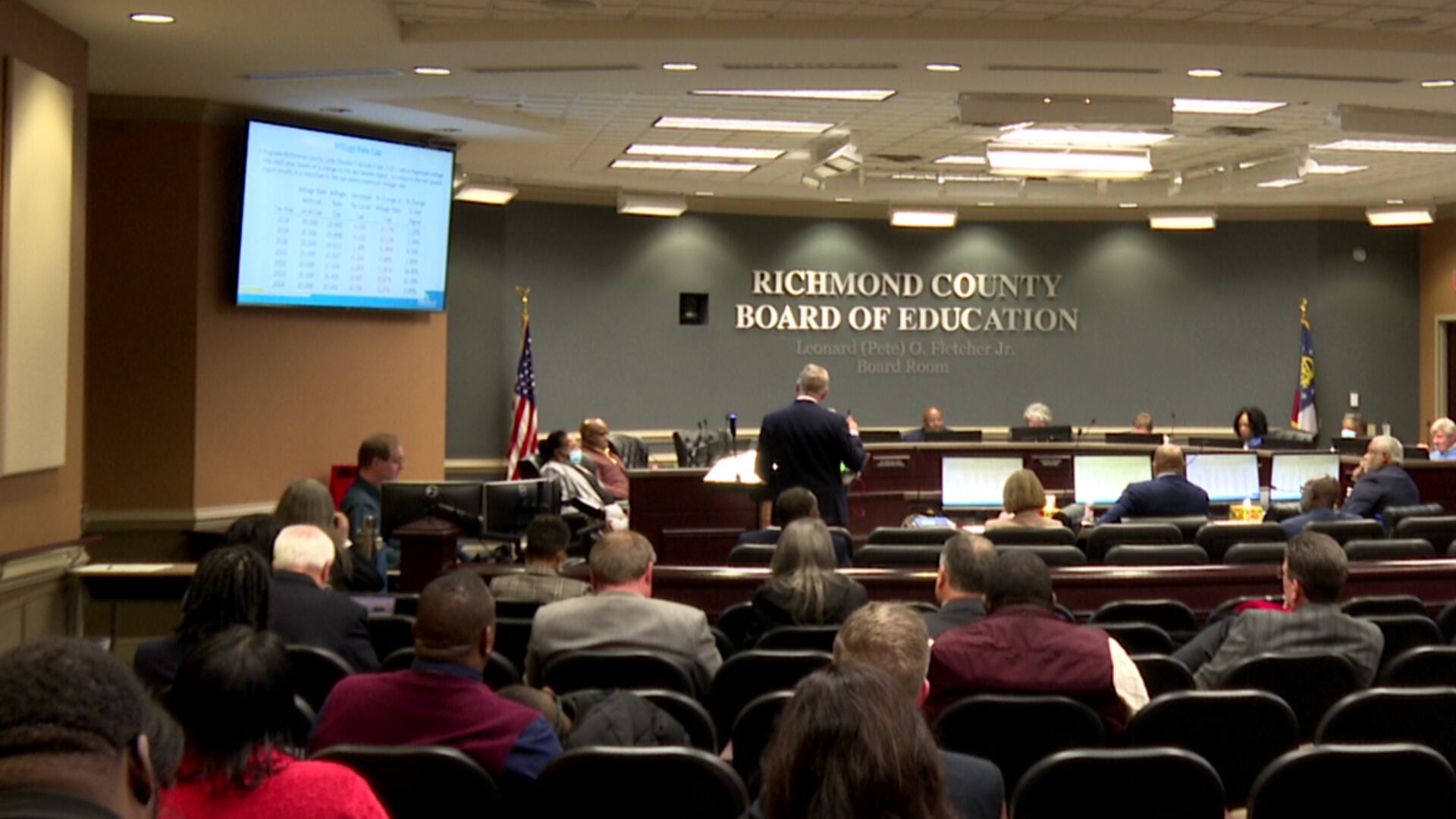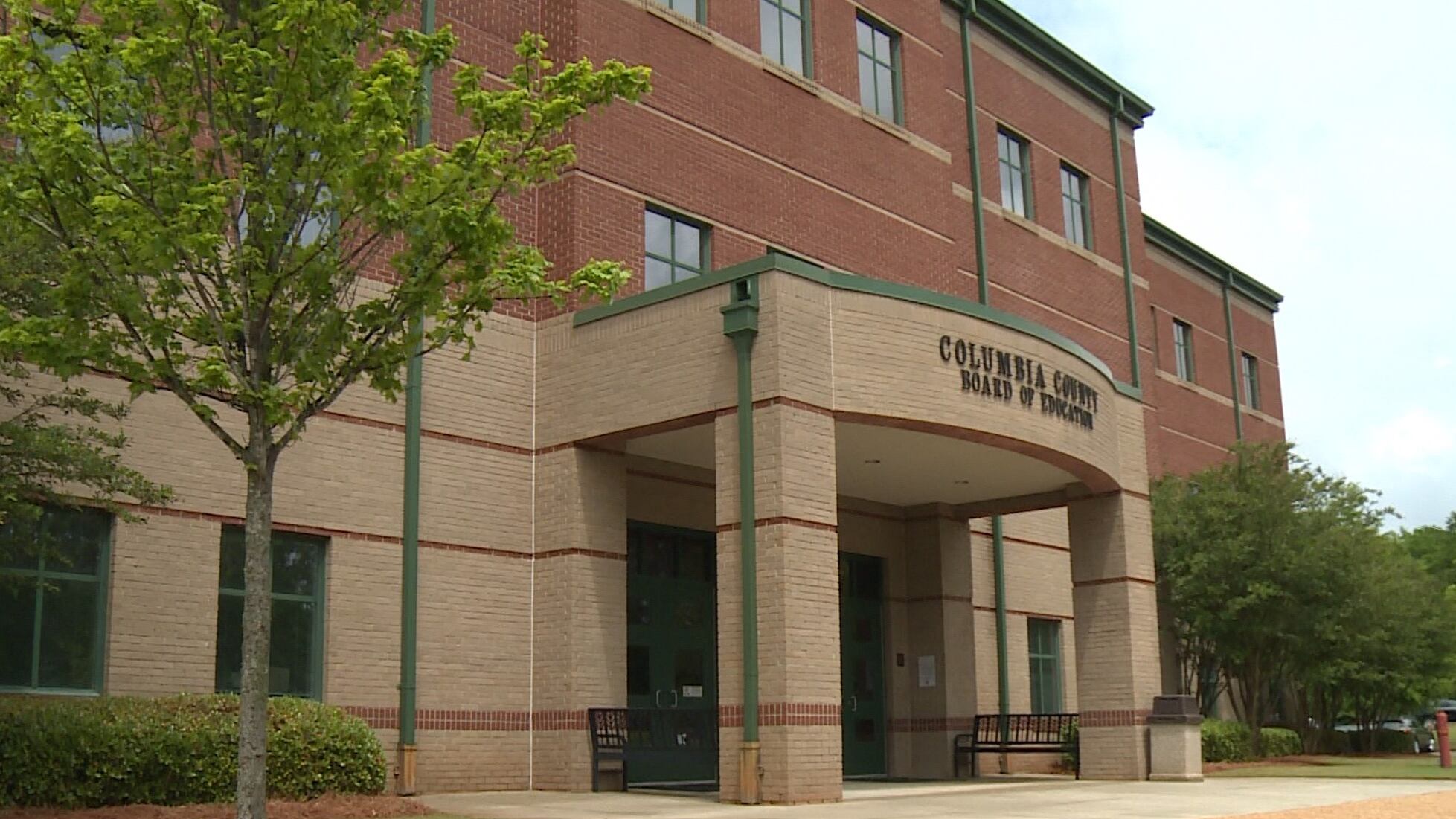Ga. homestead exemption law puts voters, leaders at odds
AUGUSTA, Ga. (WRDW/WAGT) - A new state law has put school districts and other local governments across the CSRA between a rock and a hard place.
Approved by more than 60% of Georgia voters in November, the homestead exemption law put a cap on tax hikes on your home.
But that would mean a severe budget crunch for local governments – especially school districts.
So there’s an escape valve: School districts and other local governments can “opt out” of the cap if they decide to do so after holding three hearings.
And it seems like in the CSRA, there’s been a mad rush for county governments and school boards to do just that.
The law establishes a floating homestead exemption, which limits the annual increase in property tax assessments on homestead properties to the rate of inflation for the previous year.
What does homestead exemption law mean for you?
With the new year comes new laws and one such law in Georgia has to do with protecting homeowners from big spikes in property tax values.
If local governing bodies intend to opt out, they have to do it quickly.
They couldn’t start the process until after Jan. 1, but the deadline is March 1. That’s a brief time to make a decision that affects so many people.
And although they say no decision will be made until after the hearings, the hearings are actually triggered by an intent to opt out.
HOW WE GOT HERE
House Bill 581: What prompted the referendum?
- The measure came after lawmakers fielded complaints about rising property tax bills. From 2018 to 2023, the total assessed value of property across Georgia rose by nearly 61%, according to figures from the Georgia Department of Revenue. Most governments pocketed increased revenues even as they lowered tax rates, boosting employee pay and other spending. Statewide property tax collections rose 44% from 2018 to 2023.
It must be frustrating for voters who in all but two CSRA counties voted in favor of the cap.
Columbia County voters ed the referendum by the highest margin of any place in the CSRA, with 72.07% of “yes votes.”
Yet both the Columbia County Board of Education and Board of Commissioners are holding hearings this week on opting out.
Augusta schedules 3 hearings on new property tax law
Augusta-Richmond County has scheduled three public hearings on the homestead exemption law that could impact your property taxes.

It’s not clear whether voters expected this clash between what they want and what their leaders want.
One voter told News 12 it’s important to read ballot measures carefully.
He said he knew the opt-out clause was in the measure but he still voted yes even though he opposes the cap.
“I was not in of HB581. I don’t believe that the local government should have the power taken away from them. However, I voted yes,” said Ben Current.
He said he did that because it forces county and education leaders to talk to constituents and explain what they’re doing and why.
For Current, it’s all about transparency, not lower taxes.
Richmond County school leaders hear concerns on opting out of tax-hike cap
“The way I’m looking at it as a disabled veteran homeowner, I don’t need any more burden placed on me to be able to stay and live here in Richmond County,” said one resident of Richmond County.

“Having these meetings has forced you to talk to us about this situation,” he said.
He said many everyday concerns of citizens have fallen on deaf ears, but now leaders have to sit in these meetings and listen to why people are upset – and maybe change how they go about things.
Officials say the measure is a general blanket law, but it affects every county differently. What works for Bibb County might not work for Columbia County or Richmond County. So that’s why the opt-out process is there.
BY THE NUMBERS
The referendum: How local residents voted
- » Burke County: 54.98% yes
- » Columbia County: 72.07% yes
- » Emanuel County: 57.12% yes
- » Glascock County: 54.36% yes
- » Hancock County: 42.04% yes
- » Jenkins County: 57.67% yes
- » Lincoln County: 57.54% yes
- » McDuffie County: 59.84% yes
- » Richmond County: 56.92% yes
- » Screven County: 59.46% yes
- » Taliaferro County: 54.72% yes
- » Washington County: 49.21% yes
- » Wilkes County: 53.45% yes
Ultimately, the voters will decide the fate of the school board and commissioners who either followed the public’s will or flouted it.
Current feels the results are a voter’s cry for help.
School board member Phillip Kent says he’s answering that cry for help.
“I would like to challenge the board to come up with their own version of HB581,” said Kent.
It leaves the Columbia County Board of Education with a challenge.
“I think the taxpayers deserve this challenge and depending on how the board reacts to this challenge will depend on how I vote on HB581,” said Kent.
Lawmakers who represent some districts that are considering opting out say they’ll local legislation to place them back under the cap. Senate Finance Committee Chairman Chuck Hufstetler, a Rome Republican who helped lead the writing of the amendment last year, has said he will do so if any of the districts exit the cap.
“My feeling was that in areas like mine, in Floyd County, where over 70% of the voters said they wanted it, that would convince the schools that they needed to do this,” said Hufstetler. “That’s not necessarily going to happen.”
The Board of Education must have their vote to the state by March 1.
Even though their meetings are over, the commission meetings aren’t.
Columbia County school board hears views on property tax law
Two public hearings remain for the Columbia County Board of Education to opt out of the Homestead Exemption Act. We spoke to district officials and people who live in the community.

Columbia County District 4 Commissioner Alison Couch says you still have time to make your voice heard.
“Public participation is important, and we really do want to hear what the public thinks about this bill and also to be able to educate the public on some of the details surrounding the bill. It’s a true balancing act between the public’s perception and the Bill and all the details that need to be discovered and considered as we move forward in the process,” said Couch.
The school board and the commission have not committed to how they will vote.
From here, the school board will vote in the coming weeks.
There are two meetings left for commission, and leaders say the best way to make your voice heard is to show up and talk.
Other communities
- The city of Grovetown will hold its final meeting Feb. 11 at 2 p.m. on Thursday at 6 p.m. at the City Hall council chambers.
- The Augusta-Richmond County government has several public hearings scheduled too. Those will be Feb. 4 at 6 p.m. at the Robert Howard Community Center, Feb. 11 at 6 p.m. at Warren Road Community Center, and Feb. 18 at 11 a.m. in the Lee N. Beard Commission Chamber.
- The Glascock County Board of Education will hold its third hearing on Thursday at 6 p.m. at the Board of Education building.
- The Burke County Board of Commissioners intends to opt out, and will hold hearings at the Historic Burke County Courthouse, 602 Liberty St. in Waynesboro. They’re set for 10 a.m. and 6 Feb. 12, as well as 9 a.m. Feb. 17.
Copyright 2025 WRDW/WAGT. All rights reserved.














